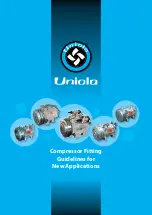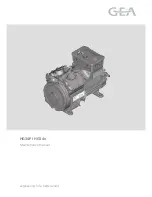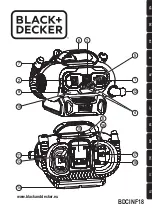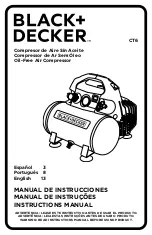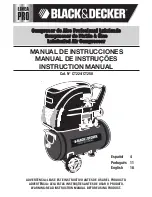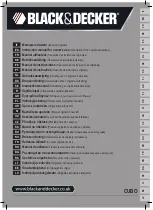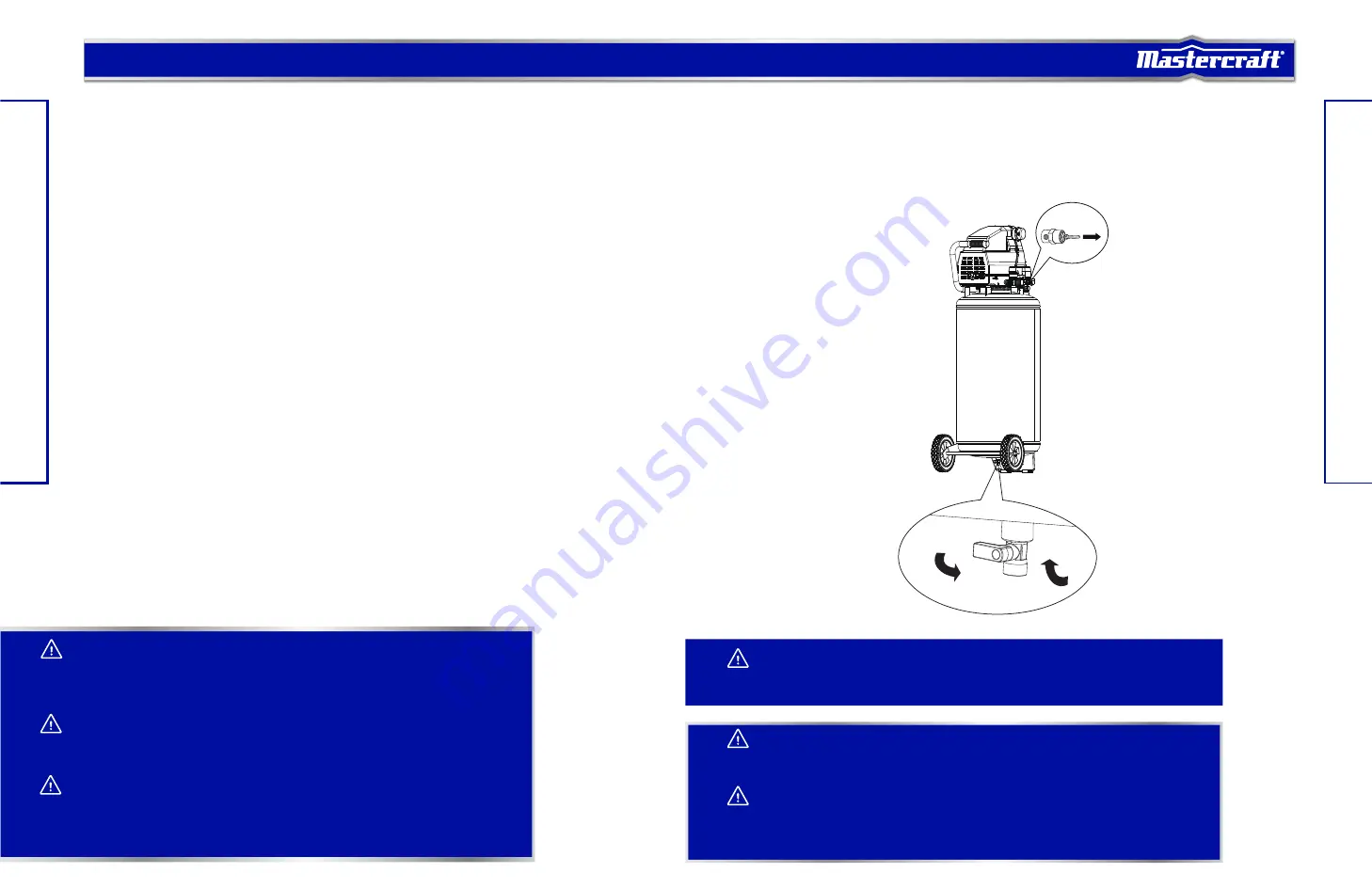
16
17
model no. 199-5705-2 | contact us 1-800-689-9928
OPER
ATING INSTRUCTIONS
OPER
ATING INSTRUCTIONS
WARNING!
Risk of bursting. Too much air pressure causes a hazardous risk of bursting. Check the manufacturer’s
maximum pressure rating for air tools and accessories. The regulator outlet pressure must never exceed
the maximum pressure rating.
If the pump has been transported or turned upside down (even partially), allow the pump to sit in a normal,
upright position for approximately 10 minutes before starting.
High temperatures are generated by the electric motor and the pump. To prevent burns or other injuries,
DO NOT touch the air compressor while it is running. Allow it to cool before handling or servicing. Keep
children away from the air compressor at all times.
WARNING!
WARNING!
CAUTION!
Escaping air and moisture can propel debris that may cause eye injury. Wear safety goggles when opening the
drain valve.
WARNING!
To avoid personal injury, always shut off and unplug the unit, and relieve all air pressure from the system before
performing any service on the air compressor.
Risk of unsafe operation. Unit cycles automatically when power is on. When performing maintenance you may be
exposed to voltage sources or compressed air. Disconnect power source from the compressor and bleed off all
air pressure.
WARNING!
Before each start-up
1.
Set the pressure switch (C) to the OFF position.
2.
Turn the air pressure regulator knob (E) counterclockwise until it stops.
3.
Attach hose and accessories.
How to start
1.
Close the tank drain valve (I).
2.
Plug in the power cord (K).
3.
Set the pressure switch (C) to the ON position and allow tank pressure to build. Motor will
stop when tank pressure reaches “cut-out ” pressure.
4.
Turn the air pressure regulator knob (E) ) clockwise until desired pressure is reached.
5.
The compressor is ready for use.
How to shut down
1. Set the pressure switch (C) to the OFF position.
2. Unplug the power cord (K).
3. Reduce the pressure in the tank through the outlet hose. Pulling the safety valve (D), and keeping it open
,
will also reduce the pressure in the tank.
OPEN
CLOSE
PULL














